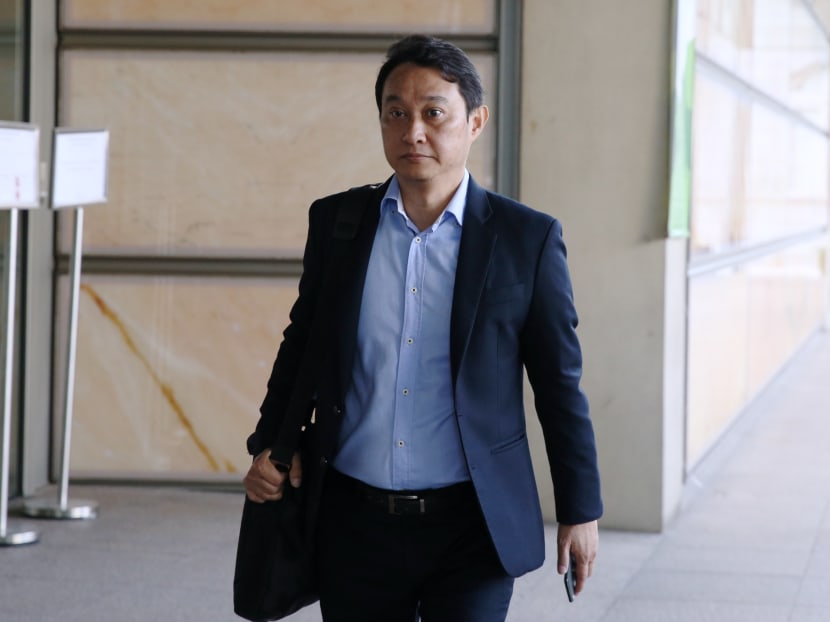City Harvest Church ex-fund manager fails in second bid to challenge conviction
SINGAPORE — The Court of Appeal had harsh words for Chew Eng Han, the former fund manager of City Harvest Church (CHC), as it dismissed his second attempt to challenge his conviction for criminal breach of trust on Wednesday (Sept 6).

Chew Eng Han, the former fund manager of City Harvest Church (CHC), is one of six former church leaders convicted in 2015 of misappropriating S$50 million of church funds. TODAY file photo
SINGAPORE — The Court of Appeal had harsh words for Chew Eng Han, the former fund manager of City Harvest Church (CHC), as it dismissed his second attempt to challenge his conviction for criminal breach of trust on Wednesday (Sept 6).
The court called his latest legal application “devoid of merit” and “an abuse of process”, while the prosecution charged that it was his attempt to delay serving his jail sentence.
Chew, 57, is one of six former church leaders convicted in 2015 of misappropriating S$50 million of church funds. They were sentenced to jail terms of between 21 months and eight years.
Following an appeal in April this year, a three-judge High Court panel significantly slashed their jail sentences.
Chew, given a jail term of three years and four months, is the only one among the six who has yet to serve his sentence. He has been granted an additional deferment until the court has ruled on a criminal reference brought by the prosecution.
In July, Chew had filed a legal application questioning the lower court’s interpretation of the terms “misappropriation” and “wrongful loss” relating to a criminal breach of trust offence. This was dismissed by the Court of Appeal.
Chew again filed a criminal motion seeking leave to refer a question of law, arguing that he did not know that his actions of channelling money from CHC’s building fund to support the church’s Crossover Project would constitute as misappropriation, and he was not given sufficient notice about this.
Furthermore, the court had pronounced that the CHC case was the first time a person was convicted for misusing money for the purpose and benefit of the owner, and the owner was the church in this case.
As he was unaware that his actions amounted to an offence, Chew said that his conviction was unconstitutional, based on Article 11 of the Constitution, which stated that “no person shall be punished for an act or omission which was not punishable by law when it was done or made”.
Chew added: “I truly believe, I never thought this was misappropriation when I gave back money to the church.”
He repeatedly pointed out that all he wanted was a “fair hearing”.
When asked on Wednesday by Judge of Appeal Andrew Phang whether he was “drip-feeding” or dragging out the legal process, he disputed this.
“I am not abusing the process, I am claiming my constitutional rights ... I have never been given a fair hearing right from the beginning,” he added.
Calling for the application to be rejected, Deputy Public Prosecutor (DPP) Christopher Ong said that Chew’s application was “out of time” since the statutory time limit requires the application to be filed within one month of the High Court’s decision.
He added that Chew could have raised the question in his previous application, but chose to withhold it in an attempt to drag out the matter, so that he could “delay his entry into prison”.
Delivering the court’s judgement after a one-hour hearing, Justice Phang said that Chew’s arguments were a rehash of his previous application and that he had failed to convince the Court of Appeal to grant him leave.
The hearing was also presided by Judge of Appeal Judith Prakash and Justice Quentin Loh.
Agreeing with the prosecution that Chew’s application was out of time, Justice Phang emphasised that his application was “plainly abusive”.
“The applicant cannot be allowed to drip-feed his questions through multiple applications of this nature,” he said.
“The principle of finality in the judicial process would be defeated if the accused person was allowed to spin out applications for leave to refer questions ad infinitum, prolonging the criminal proceedings indefinitely and delaying the commencement of his sentence.”






